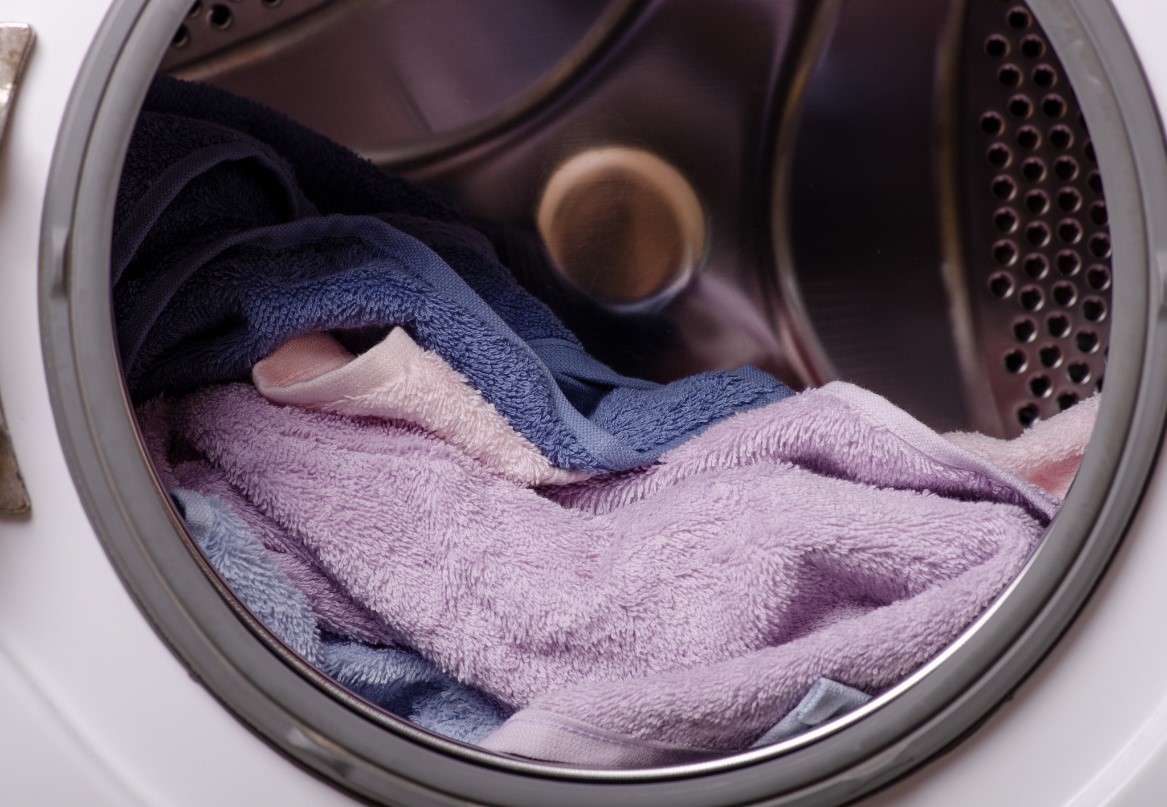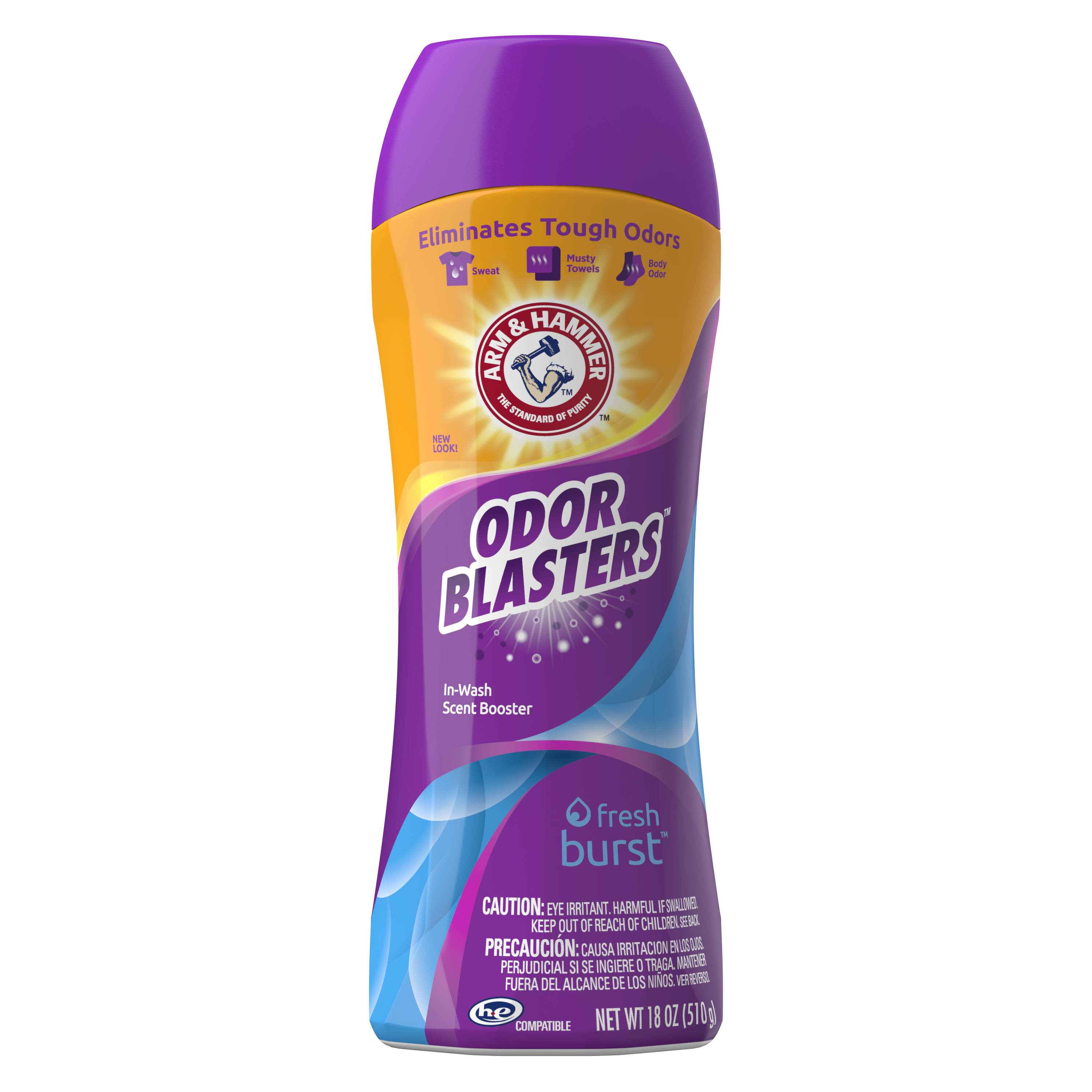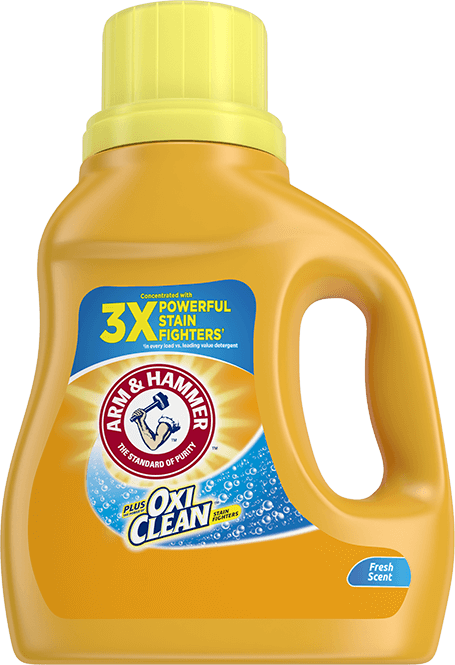Do You Need Fabric Softener?
If you’re wondering if you need fabric softener, you’re not alone. Here are the benefits of fabric softener to help you decide:
- Adds a pleasant scent to laundered items
- Softens fibers for a cozy feel
- Reduces fiber friction, which can decrease pilling and help clothes last longer
- Prevents and reduces wrinkles
- Lowers static cling
- Helps reduce drying time
- Helps reduce fading and stretching
As you can see, there are excellent reasons to use a fabric softener in your laundry routine. Dryer sheets have the benefits of a fabric softener in a lightweight format you don’t have to measure or worry about spilling. Plus, you can find dryer sheets that are free of dye and perfumes if you want the benefits without the scent.
When Should I Use Fabric Softener?
There are certain items like sheets, blankets, bathrobes, and your favorite t-shirts or hoodies that are great candidates for fabric softener. Anything that you want to cuddle up in or be super soft and comfortable will be improved with fabric softener coating the fibers and giving them a silky, luxurious feel.
If you find your jeans or shirts are too stiff, fabric softener can help them relax. If you get lots of static electricity in your bedding, fabric softener can help reduce or eliminate it. Items you plan to iron also benefit from using fabric softener because the lower fabric friction reduces wrinkles and helps the iron glide over the surface easily.
Before using any fabric softener, check the laundry care label of your bedding and clothes to make sure fabric softener is allowed.

What You Shouldn’t Use Fabric Softener On
That said, there are items that you should never use fabric softener on because coating fibers reduces their appeal, safety, or usefulness. Always read your item’s care label and follow the instructions. If it says, “Do Not Use Fabric Softener,” then don’t! (you can just wash and dry them separately).
These fabrics are generally a no-go when it comes to using fabric softener:
- Flame-retardant clothing such as kids’ pajamas. Fabric softener reduces the effectiveness of the protective coating.
- Moisture-wicking fabric such as athleisure or sportswear. Fabric softener lowers its ability to absorb and wick away sweat.
- Water-repellant or insect-repellant fabric. These fabrics are already coated so you don’t want to add another coating that will keep the original from doing its job.
- Microfiber cloths, towels, or sheets. Fabric softener harms this fabric’s ability to grab dirt and absorb liquid by coating the grippy fibers.
- Wool, cashmere, mohair, and wool blends. These are softest when the natural fibers shine through.
- Down-filled coats or blankets. These rely on tiny spaces of air to create loft and warmth. Fabric softeners will coat and weigh down or flatten the feathers.
- Swimsuits, bras, and spandex. These synthetic fabrics don’t absorb much water and dry quickly, but fabric softener will cause them to attract more water and dry more slowly, potentially leading to musty smells.
- White items. Using fabric softener on your white clothes and linens is a maybe. Over time, white items can start to look dingy from fabric softener build-up. If that happens, it’s time to strip your laundry to remove the residue.
If you use dryer sheets, be sure to wash your lint screen every few weeks to get rid of any fabric softener buildup.
Should You Use Fabric Softener on Towels?
Should you use fabric softener on towels? The short answer is: maybe. Fabric softener makes towels fluffier and softer, and it adds a pleasant scent you’ll enjoy getting close to. But by coating the towel’s fibers, fabric softener can make towels less absorbent.
Over time, fabric softener can build up on the towel and make it feel stiff or “crunchy.” As with reviving dingy white items, laundry stripping will help remove the residue and restore the towel’s absorbency and softness.

How Much Fabric Softener to Use & When Should I Add It?
Knowing when to add fabric softener during the wash cycle and how much to add can be the trickiest part of using it. Follow the instructions on the bottle – each brand has different measurements per load size.
Some washing machines have a dispenser for fabric softener or bleach that will automatically add it during the final rinse. If your washer doesn’t have this feature, you’ll need to pay attention to when the cycle enters its final rinse, then open the lid to add fabric softener to the water.
To skip the hassle of measuring and adding it at the right time: choose a laundry detergent that also has fabric softener or use dryer sheets.
What about Detergent with Fabric Softener?
If you’re worried about adding too much fabric softener or just don’t want to buy and store two different products, consider a laundry detergent and fabric softener in a single formula. ARM & HAMMER™ Liquid Laundry Detergent Plus Softener in Orchard Bloom, has just the right amount of fabric softener per dose, so you won’t under or overdo it. It’s also super convenient and easy-to-use – just add at the beginning of the laundry cycle (or use your machine’s “load-and-go” compartment) and get clothes clean, soft, and smelling fresh without having to worry about timing, measuring, or staining.
Is Fabric Softener Necessary?: The Final Verdict
Like most things in life, fabric softener has its place, as long as you know when and how to use it. The bottom line:
- Use fabric softener or dryer sheets with clothes and items you want to feel soft, smooth, and fragrant.
- Skip fabric softener when washing athleisure, kids’ pajamas, wool, down, and synthetic or already coated fabrics.
- When it comes to towels and white items, use fabric softener for fluffiness and fragrance, but plan to strip them if softener build up leads to reduced absorbancy or over time.
- Choose the fabric softener format that best suits your laundry lifestyle: a separate softener to add in the final rinse, a combined laundry detergent with softener, or a scentsational sheet to add to the dryer.



